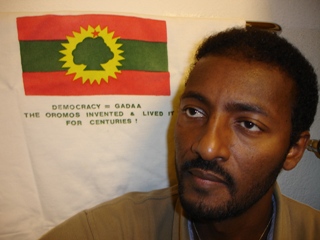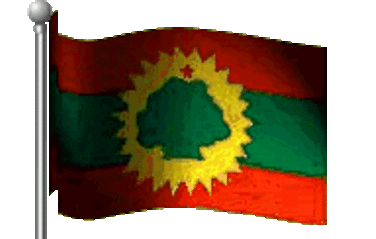The US Administration must condemn human rights violations committed by the Ethiopian forces, a Washington-based aid agency said.
Somalia has repeatedly been described as being more tragic than Darfur and the worst humanitarian crisis in Africa. Despite this, it has garnered shockingly little international attention. The UN Refugee Agency (UNHCR) estimates there are currently one million people displaced. Malnutrition rates for children under 5 are above emergency thresholds. In the first three months of 2008 alone, 60,000 people fled Mogadishu due to continued insecurity. Some 200,000 people have settled on the road to Afgooye, a village 30km west of Mogadishu, making it the most densely populated settlement of internally displaced people (IDPs) in the world. A Washington-based aid agency said.
In December 2006 Ethiopian forces intervened in defence of Somalia’s internationally recognized government, the Transitional Federal Government of Somalia (TFG). The Ethiopian National Defence Force (ENDF) occupied parts of south central Somalia.
"These military actions undermine the diplomatic push for political reconciliation and galvanize extremist elements, reinforcing the very threat that U.S. policy in the Horn of Africa is meant to address, Refugees International said in a report titled
The controversial Ethiopian occupation was officially meant to be temporary. Fifteen months later, the ENDF is bogged down in urban combat with heavy civilian casualties.
Based on Refugees International interviews, it is clear that Somalis view the TFG as an externally imposed and illegitimate body.
Abusive behaviours by TFG security forces and their Ethiopian allies, as well as the lack of government services throughout large swaths of the country has resulted in dwindling popular support in the future of the TFG. This essential mistrust will need to be addressed before investments in capacity building and institution building can have any impact.
Most disturbing are the gross abuses committed by groups responsible for ensuring the security of Somalis. In Mogadishu, the epicentres of the violence in Somalia, the vast majority of civilians have fled as a result of the ‘search and sweep’ operations orchestrated by the TFG security forces and the Ethiopian military. Displaced Somalis told Refugees International about the shelling of entire neighbourhoods and the indiscriminate killing of civilians. One woman who had fled Mogadishu recounted how her husband had been shot in the streets as he was walking home from work in the Bakara market area.
According to witness of Refugees International; internally displaced Somalis blame Ethiopian forces for the violence and their personal losses.
The role of the US is increasingly problematic. Despite repeated denials of any role in the Ethiopian invasion, the US is perceived as supporting the Ethiopian presence and the reprehensible behaviours of Ethiopian troops.
Refugees International strongly encourages the US Administration to condemn human rights violations committed by the Ethiopian forces. RI recommends that the US Congress investigate any military support that was provided to Ethiopia to ensure it adheres to US law.
International recognition of the TFG will never be a surrogate for real legitimacy in the eyes of Somalis. Moreover, senior UN and NGO staffs on the ground privately express their scepticism over the political viability of the TFG. In the words of one researcher, the TFG is a ‘hologram’ projecting an image of a government acceptable to donors, but ultimately empty of any real power.
In order to stabilize Somalia and keep this crisis from spreading further, the international community must act now to find a viable solution to the political crisis in Somalia. International assistance is not a substitute to diplomatic engagement. The US must pressure the Ethiopian government to end numerous human rights abuses. The UN needs to increase its capacity to monitor and deliver impartial assistance by increasing numbers of international staff inside the country. And international peacekeepers must not be deployed until political preconditions are met, and unless UN member states are willing to provide them with the troops, equipment, and mandate to confront armed resistance and address the root political causes of the Somali conflict.
1. The UN Security Council must approach the use of an international military force with extreme caution, and take seriously the Secretary General’s assessment that a peacekeeping deployment can only be successful when political efforts have created a modicum of peace to keep.
2. AMISOM should expand only under similar conditions as those that would permit the deployment of a UN force.
3. The US Administration must condemn human rights violations committed by the Ethiopian forces. The US Congress should investigate the conditions under which military support was provided to Ethiopia, ensuring it adheres to the principles outlined under US law.
4. UNHCR must dramatically increase its Somalia based staff focusing on national staff to a level that enables ongoing protection work through periods of high insecurity.
Refugees International also said a political agreement between the shaky Somali government and its opposition was "the principal prerequisite for greater military and political engagement from the international community."



0 Comments:
Post a Comment
<< Home